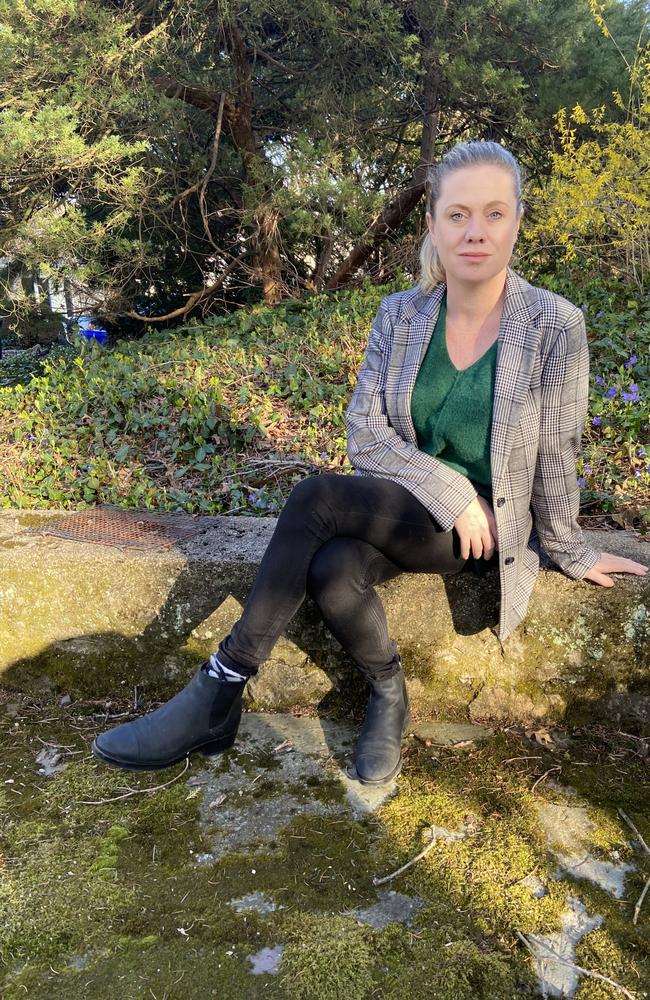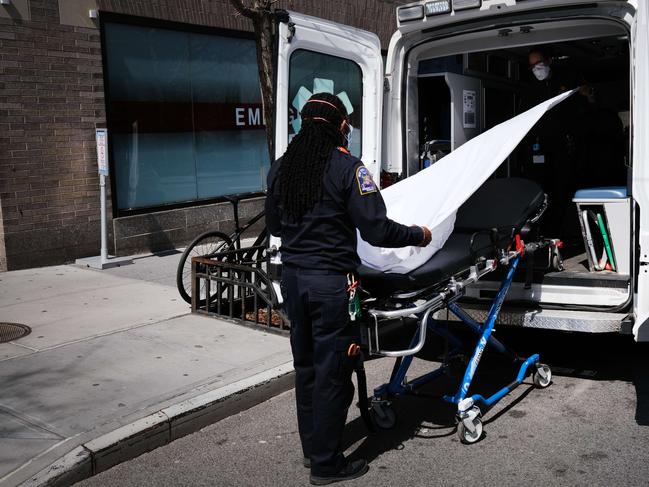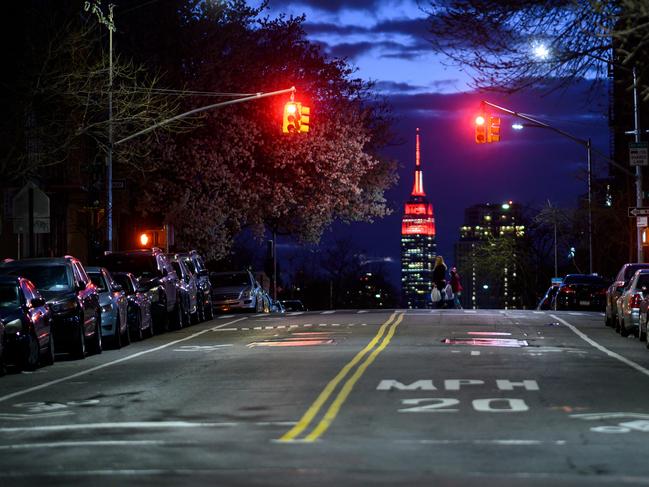Coronavirus crisis: News Corp journalist tells of family’s COVID-19 hell
After being diagnosed with coronavirus in New York, News Corp’s US correspondent Sarah Blake has revealed how unreliable testing has left her family fearful and uncertain.
Coronavirus
Don't miss out on the headlines from Coronavirus. Followed categories will be added to My News.
When suddenly I couldn’t smell the Vicks VapoRub and Tiger Balm I was using to help myself get a deep breath last week, I lost my last doubts about what was going on.
I had coronavirus.
After experiencing every published symptom apart from a dry cough, it was confirmation that we had done the right thing to lock ourselves down and act as though we were all infected.
The problem is, we still have no way of really knowing.
Our doctor says he has no doubt the virus washed through my family over the past few weeks, but the test, when I finally had it after seven days of being knocked down by what felt like the worst flu I have ever had, was inconclusive.

“You are presumed positive and clinically diagnosed,” my doctor said.
“There is no doubt that you have or have had the virus, but unfortunately the tests we are using have a 30 per cent failure rate, so there are a lot of people out there thinking they are clear and spreading it around more.”
We live in one of America’s initial hot spots of Westchester County and work in hard-hit Manhattan, so we expected that even though we were careful, it wasn’t likely we would miss COVID-19.

To understand the fear that this put in our family consider that New York is now the world’s coronavirus epicentre and the city’s morgues are already at capacity.
This is the country that considers the loss of 100,000 people in coming weeks a best-case scenario.
Given we have been socially isolating since mid-March, we think we picked it up on one of our last work trips to the city, the final supermarket shop we did (wearing gloves and sanitising our hands and our bags as much as possible), or that our boys brought it home from school.

My husband and two sons were tired, had sniffles, cold symptoms and sore throats.
For me it was different, maybe because I had been travelling so much for work and already had dealt with a few lurgies over our northern winter.
For the first days it was a sore throat, some body aches and stabbing pains in my legs and arms. Then came an unshakeable headache, and a fever a couple of nights that hit 40 degrees but came down with medication.
Ear aches, an upset stomach and a runny nose followed, but the worst thing was the bone-deep exhaustion and dizziness.

Over three online consults with my doctor last week, he diagnosed COVID-19 and on Monday I signed up for testing with the New York State health department at their New Rochelle drive-through. The appointment was set for the following Saturday, but on Friday any doubt that I had was dispelled when I woke up without my sense of taste and smell.
The testing was otherworldly, not least because there was a heavy fog over Long Island as we drove onto the island reserve where a dozen members of the national guard and white-clad medical staff checked our ID through our car windscreen and ushered us under two tents where I was treated through the barely open window.
Multiple signs had warned us not to wind down our windows until instructed and the nurses who swabbed my nose and throat wore full body and face protection, rubbing sanitiser over their first layer of gloves before putting on a second pair to approach me.
The result came two days ago: no trace of the virus was found, but I should be retested. It’s unclear how long this will take, and given that I am now only experiencing mild symptoms, it’s likely any test would come back negative.
I know that if this is indeed our coronavirus experience, then we got off incredibly lightly, and I am grateful. Given the lack of a positive test result I had no plans to publicly share this story.
But now that doctors here are saying at least one-third of tests are delivering a false negative, and there are so many people walking around without any symptoms, it didn’t seem right to not try to warn people.
“False-negative test results — tests that indicate you are not infected, when you are — seem to be uncomfortably common,” wrote Yale professor and medical doctor Harlan Krumholz in The New York Times.
“Increasingly, and disturbingly, I hear a growing number of anecdotal stories from my fellow doctors of patients testing negative for coronavirus and then testing positive — or people who are almost certainly infected who are testing negative.
“Research coming out of China indicates that the false-negative rate may be around 30 per cent. Some of my colleagues, experts in laboratory medicine, express concerns the false-negative rate in this country could be even higher.”
Health experts here advise that if you have cold-like signs, then assume you have it and lock yourselves down.
The great shame now is that there are many families like ours with no idea what the next steps are. Without a reliable test for antibodies, there are possibly millions like us who presumably have some immunity and could get back out to work or even volunteer to help with the war that’s being fought down the road. Instead we remain locked down inside, like so many others, scared, fearful and uncertain.
Originally published as Coronavirus crisis: News Corp journalist tells of family’s COVID-19 hell


